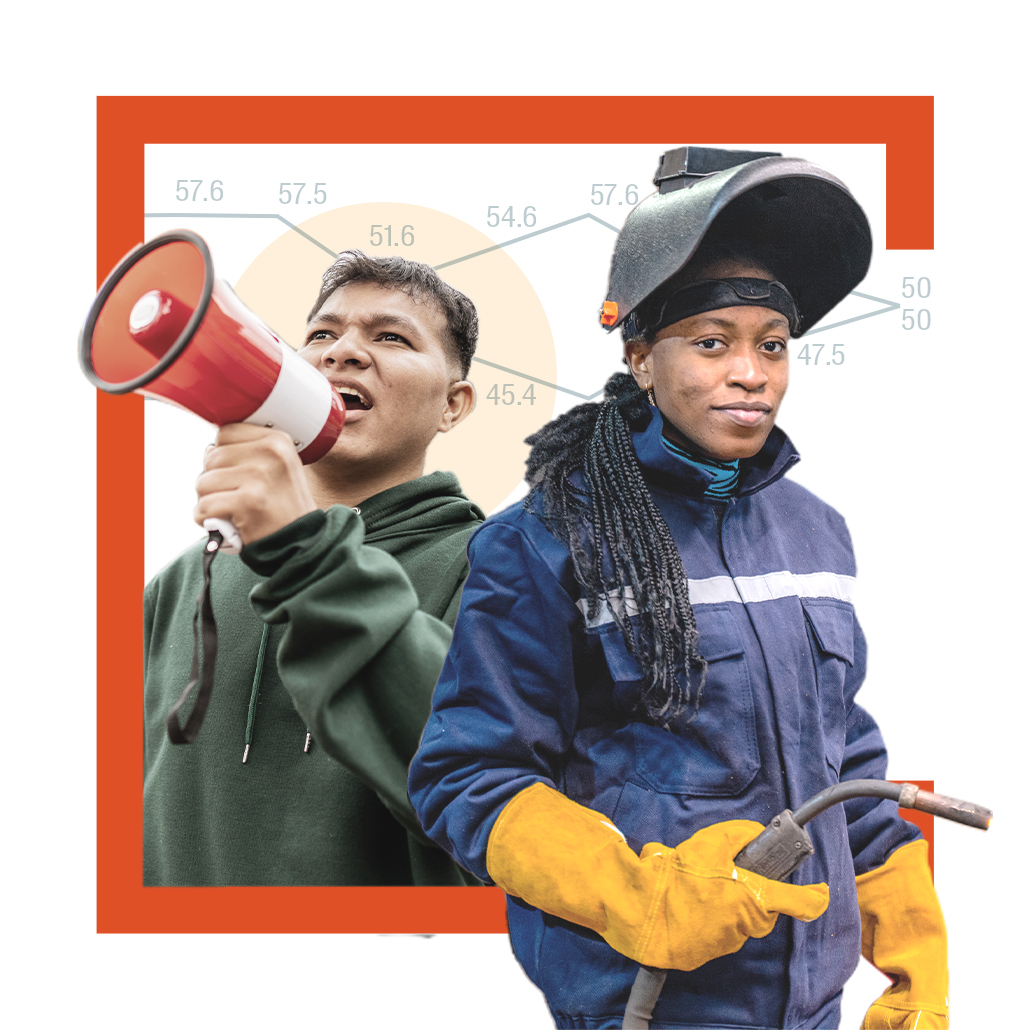Changing the narrative on work and labor
The way we talk about the economy shapes how people understand it and the kinds of policies they support. Whether we are advocating for greater economic justice in general or working toward more inclusive policies on economic drivers like housing, caregiving, or manufacturing, our language matters.

What the Research Tells Us
We’re in a pivotal moment.
Americans have been fed a steady diet of narratives claiming that the economy operates “naturally,” and intervention is unwise. As this narrative grows stale, there’s a growing appetite for explanations of how we can systemically change things for the better.
Mindsets about gender are tied to mindsets about work.
People assume, for instance, that manufacturing is men’s work and caregiving is women’s work. Because these essentializing assumptions hamper understanding that the economy is designed, economic justice advocates need ways to tackle them.
Competing mindsets about unions persist.
Americans tend to assume that workers are stronger when they come together, and that unions can help build worker power to improve conditions. However, people also at times think of unions as fundamentally self-interested, corrupt, or inept.
